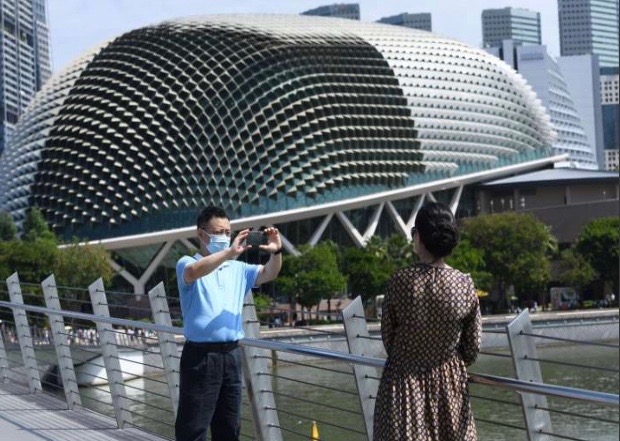STUART MULJADI WRITES — “The day the earth stood still” is the best way to describe the past couple of weeks. COVID-19 has divided countries, tanked economies and businesses and, worst of all, the virus has caused a shortage of the world’s supply of toilet paper. People’s daily lives are at a halt and so far there is nothing we can do but stay home and watch Netflix. Though as I sit here writing, I know that there are many working overtime to ensure our safety by containing the virus. Unfortunately, some parts of the world are more effective than others in doing so.
In the West, governments are struggling to supply basic medical protective gear and test kits for their people. Specifically, the US government’s problem is the leadership under President Trump. An example of this is that, in the early stages of the pandemic, Trump consistently downplayed the seriousness of COVID-19 as it spread across the US. He stated how it was “not that big of a deal… and how it was going to disappear by Springtime,” relying on warmer weather to kill off the virus. Well now it’s Spring, and the situation is getting much worse- the opposite of what he claimed.
In addition, Trump contradicted himself by once actually claiming that this whole event is a Democratic hoax aimed at preventing him from winning reelection this year. However, the situation in the US is at a tipping point, with over 68,581 infected, 1,000 dead and 430 recovered as of March 25- numbers even the Democrats couldn’t make up.
Trump’s overall reaction to this pandemic could be summed up as ‘politics over the taxpayers needs’ – an epidemic that could have been better contained but instead spread across 50 states like wildfire, due to widespread misinformation by the government and the press.
So what can western countries like the US do to contain this virus? The answer: Look East.
Countries like Singapore and Taiwan have been praised by WHO for their practices in containing the virus and responding quickly and decisively.
Consider the relationship between their leaders and health officials. In Taiwan, politicians rely on and entrust decision-making to their health officials. Professor Su Ih-jen, former director general of the Taiwan Centers for Disease Control during the SARS epidemic in 2003, commented on the situation developing in Taiwan: “The mood in Taiwan also drastically differs from the sense of panic and confusion in Europe and the US.” The reason for this is due to the country’s quick reaction to COVID-19, acknowledging it as a major threat, when other countries didn’t. As a result, it employed an effective strategy of distributing testing quickly to the public. As of March 27, the country consisting of 20 million has 237 infected cases, with 30 recovered and 3 deaths.
Singapore has had a reputation as one of the cleanest city-states for over the past decades. Like Taiwan, Singaporeans were also ahead of the curve by being the first country to ban travel to China. As a result, Singapore has “only 683 confirmed cases of the new SARS coronavirus, and only two people have died from respiratory complications. Singapore’s mortality rate is the best in the world at 0.3%.”
In contrast, the Trump administration and the leading health official on this matter, Doctor Fauci, director of the National Institute of Allergy and Infectious Diseases, has done the opposite. The president has even resisted portraying the virus as the kind of threat described by Dr. Anthony Fauci and other top-tier public health experts. Fauci expressed his concerns during meetings regarding COVID-19 with Trump, commenting that “…even though we disagree on some things, he listens. He goes his own way. He has his own style. But on substantive issues, he does listen to what I say.” But by going his own way Trump has put many health officials and workers at risk – by not providing the sufficient amount of protective gear for the ones fighting on the frontlines against this virus. On the whole, Trump’s erratic approach presents a huge risk to the American people, who are confused as to whether to be worried or not, further polarizing a situation in which people shouldn’t take sides.
But who can blame them? With the current administration in charge, claims that fact isn’t fact and news isn’t news create a breeding ground for chaos and confusion. If the current administration had stopped and taken this matter more seriously early on, maybe the number of confirmed cases would have been lower and maybe there would still be a chance for me to buy a roll of toilet paper at the local supermarket.
But that’s a huge if.
LMU undergraduate Stuart Muljadi, now at home in Jakarta, is an Asia Media contributing editor.

